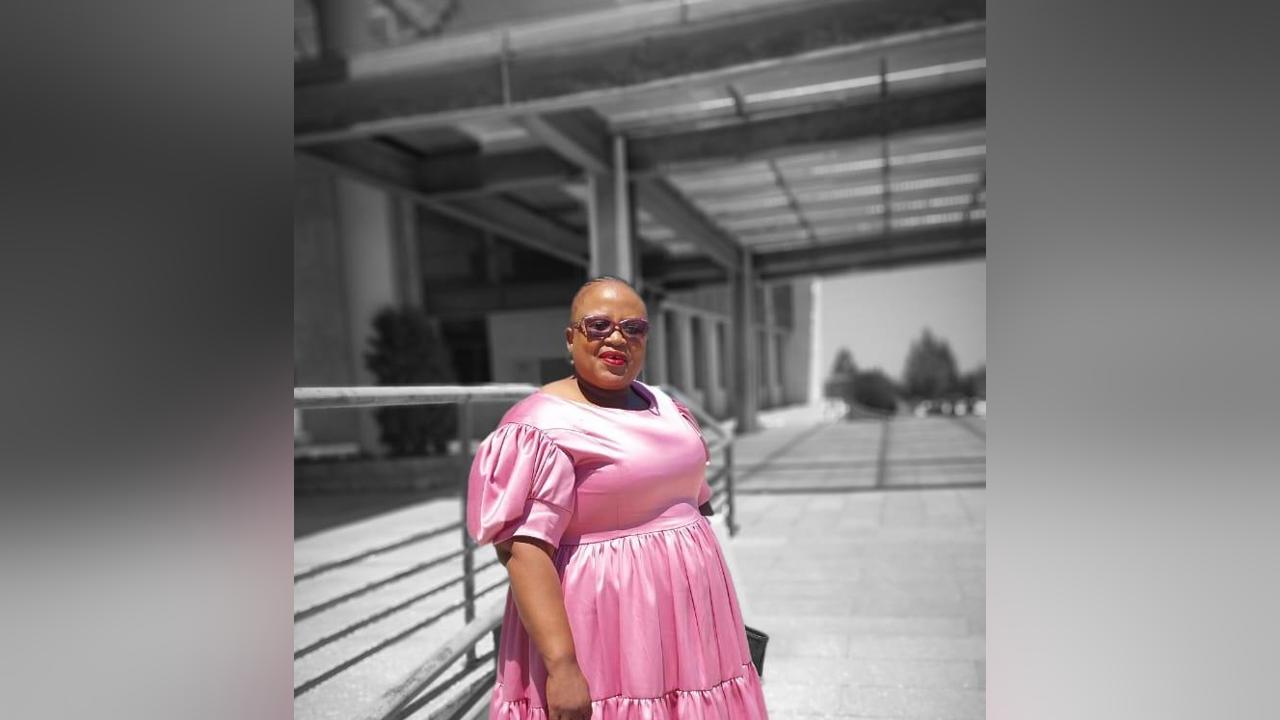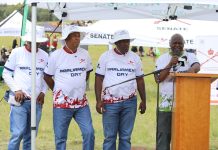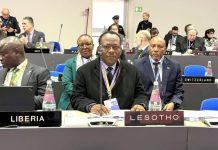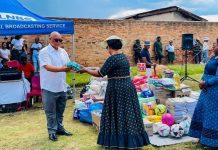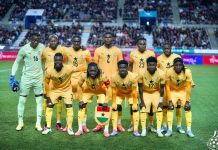Africa-Press – Lesotho. AS a little girl, ’Manthabiseng Maeea, the Democratic Congress (DC) proportional representation MP from Kolonyama constituency, witnessed domestic violence.
“My parents used to fight in front of us when we were young,” said the 37-year old, adding that her parents eventually separated, causing her to be raised at her mother’s maiden home.
Recent research indicates that children who witness domestic violence show more anxiety, low self-esteem, depression, anger, and temperament problems than children who do not witness violence in their home.
This is according to a United States-based online magazine, womenshealth. gov in an article titled “Effects of domestic violence on children”. Not so for Maeea.
As an MP, she believes she now has an opportunity and platform to do something about the scourge. “Now that I am in Parliament, I want to see the enactment of tough laws to punish people who are the main drivers of Gender Based Violence (GBV).
I have to make noise and push for laws that protect women against abuse in all its forms,” said Maeea. In Lesotho, gender-based violence tops the list of women’s-rights violations, according to an Afrobarometer survey published in August last year.
The Gender-Based Violence Indicators Study by Gender Links (2015) reported that 86 percent of women and 40 percent of men in Lesotho experience some form of
violence in their lifetime. The study states that the majority of victims do not report the violence to the police or seek medical attention or legal recourse.
Among barriers to reporting, the study identified survivor stigmatisation by the community, feelings of shame, inadequate police response to victims, and the belief that domestic violence is a private matter not to be discussed with strangers.
A study by the Commonwealth (2020) reported that about one-third of women in Lesotho suffer sexual or physical violence in their lifetime and that GBV costs the country 5.5 percent of its gross domestic product in lost income and expenses associated with medical, legal, and police support.
A majority (53 percent) of citizens say violence against women is a “somewhat common” (28 percent) or “very common” (25 percent) occurrence in their community. In Lesotho, most citizens say physical force is never justified to discipline women, according to the Afrobarometer.
But they also say that gender-based violence is a common occurrence and constitutes the most important women’s-rights issue that the government and the country must address.
A majority of Basotho believe that the police are likely to take GBV cases seriously and that GBV should be treated as a criminal matter rather than a private matter.
A Commonwealth report has revealed violence against women and girls costs Lesotho more than US$113 million (about Lesotho M1.9 billion) a year. Maeea says women are still deprived of employment advancement and other economic opportunities because of their gender.
“This is common in security institutions,” she said. Maeea says it is disturbing to see women going into politics but failing to support one anoter.
“This trend has to change so that women can become part of the law-making body. This would help women push for laws that are for them,” said Maeea.
Witnessing her parents fight in front of her affected her negatively, especially in her school life. “I still have emotional scars of the abuse my mother experienced while we were young,” she said.
But that experience has also shaped her into a fighter for women’s rights. “This is what also makes me be on the front line to root out GBV,” said Maeea.
She says abuse happens “in almost every corner”. As a young girl, Maeea did not envisage herself as an MP one day. At that age, she was just joining her grandfather when he attended political rallies of the congress movement.
She enjoyed political stories from her father that he usually shared with her. “Some were harrowing, devastating and heart-breaking, while others were fascinating,” Maeea said.
Then in 1998, she became active in politics. “I was no longer a spectator but an active player in party politics under Pakalitha Mosisili. What made my journey into politics easy is the wealth of experience I gathered from my grandfather,” she said.
She became an active youth under the then solid and strong Lesotho Congress for Democracy (LCD) which at the time was the biggest party in the country.
When the LCD split into two factions and the Democratic Congress (DC) was birthed, Maeea joined the new movement. Because of the passion that drove her into politics, Maeea landed into the DC women’s league.
“It was my grandfather who infused the love of politics in me,” she recalled. To further push her dreams in politics, Maeea threw her hat in the ring for the 7 October general election in her Kolonyama Constituency.
She lost to a candidate from the Revolution for Prosperity (RFP) party founded by Prime Minister Ntsokoane Sam Matekane a few months before elections.
“It was a massive blow for me because I wanted to be an MP for my constituency so that I could represent my people in the constituency,” she said, recounting the loss.
While still grappling with the loss, she landed a job in Parliament through the Proportional Representative (PR) seat. “But still I am not happy because I wanted my party to be the one leading the government.
I strongly believe in my party’s policies regarding economic transformation. The policies were going to help drive the economy of this country and help it to graduate out of poverty,” said Maeea.
Apart from being a politician, Maeea, who holds a degree in International Business from Limkokwing University of Creative Technology (LUCT), says she is also a businesswoman.
Together with her cousin in Newcastle, South Africa, they are running a lucrative business to change their lives and of those around her. “I applied the skills that I got from LUCT to think outside the box and formulate business plans,” she said.
Maeea says they saw a business opportunity in scores of Basotho women working in the factories of Newcastle. The business helps Basotho women send remittances to their families back home for a fee.
“This usually happens almost every month when factory workers have earned their salaries. This is a good and lucrative business,” she says.
The business is now threatened by the crackdown on undocumented Basotho by South African police. But her main focus remains fighting for the people in Parliament.
Maeea recalled that before contesting the elections she was working at the Ministry of Home Affairs under the Department of Livestock Marking and Information Systems.
She resigned so that she could enter the race for the elections to conform to electoral laws that demand that civil servants resign when contesting elections. Her father, Moletsane Mokhethi, says Maeea is her second daughter in a family of five. He says business has always been her forte.
“She would buy blankets and sell them for a profit,” he said, adding that she ventured into small business projects to keep wolves off the door at an incipient stage.
“But she was also brilliant while a student. I taught her while she was in Grade 7,” Mokhethi recalled.
For More News And Analysis About Lesotho Follow Africa-Press

